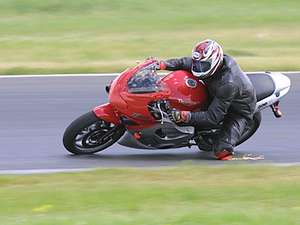
| A CZECH speedway driver knocked unconscious in a crash stunned ambulance drivers when he woke up speaking perfect English. | Чешский мотогонщик, потерявший сознание в аварии, ошеломил водителей “скорой помощи”, когда он очнулся и заговорил на идеальном английском языке. |
| 18-year-old Matej Kus was out cold for 45 minutes after the crash, but when he woke up he conversed fluidly in English with paramedics, even speaking in an English accent. | Восемнадцатилетний Матей Кус был без сознания 45 минут после аварии, но когда очнулся, он без затруднений заговорил по-английски с парамедиками, и даже говорил с английским акцентом. |
| The teenager had just begun to study the language and his skills were described by friends and team-mates as “basic at best”. | Подросток только начал изучать язык и его способности описывались друзьями и товарищами по команде как “в лучшем случае – начальные”. |
| Peter Waite, the promoter for Kus’s team, the Berwick Bandits, told the Daily Mail: “I couldn’t believe what I was hearing.” | Питер Вэйт, промоутер команды Куса, “Бандиты Берека”, сказал Daily Mail: “Я не мог поверить своим ушам”. |
| It was in a really clear English accent, no dialect or anything. Whatever happened in the crash must have rearranged things in his head. | Это был действительно чистый английский акцент, без диалекта и других отклонений. Каким-то образом во время аварии вещи перестроились у него в голове. |
| Before his crash Matej’s use of the English language was broken, to put it mildly. | Перед аварией, английский язык Матея, мягко выражаясь, был ломаным. |
| He was only just making a start on improving it and struggled to be understood, but was keen to learn. | Он только начал его улучшать, и хотя приходилось стараться изо всех сил, что бы его понимали, он учил язык увлеченно. |
| Matej didn’t have a clue who or where he was when he came round. He didn’t even know he was Czech. | Матей, когда пришел в себя, не имел понятия кто он и где он находится. Он даже не знал, что он – чех. |
| It was unbelievable to hear him talk in unbroken English. | Невероятно было слышать, как он говорит на правильном английском языке. |
| Unfortunately, the speedway driver’s new found skills didn’t last and he remembers nothing of the accident or the following two days. He is now keen pursue studies in English. | К сожалению, новые умения мотогонщика не сохранились, и он не помнит ничего о происшествии и следующих двух днях. Сейчас он продолжает увлеченно заниматься английским языком. |
| He told the Daily Mail, through an interpreter: “It’s unbelievable that I was speaking English like that, especially without an accent.” | Он рассказал Daily Mail с помощью переводчика: “Невероятно, что я так говорил по-английски, особенно без акцента”. |
| “Hopefully I can pick English up over the winter for the start of next season so I’ll be able to speak it without someone having to hit me over the head first.” | Надеюсь, я смогу нахвататься английского за зиму к началу следующего сезона, и с могу говорить на нем, без того, чтобы кто-то ударил меня сначала по голове. |
| “There must be plenty of the English language in my subconscious so hopefully I’ll be able to pick it up quickly next time.” Источник: http://www.news.com.au |
Должно быть в моем подсознании находится большой объем английского языка, поэтому я надеюсь быстро его нахвататься в следующий раз. englishtexts.ru |
Словарь:
stun – to surprise or upset someone so much that they do not react immediately
out cold – [informal] unconscious (He drank until he was out cold.)
not have a clue – [informal] to not have any idea about the answer to a question, how to do something, what a situation is etc (‘Do you know how to switch this thing off?’ ‘I haven’t a clue.’)
come round – to become conscious again after you have been unconscious (When she came around her mother was sitting by her bed.)
pursue – to continue doing an activity or trying to achieve something over a long period of time (She plans to pursue a career in politics.)
pick something up – to learn something by watching or listening to other people (I picked up a few words of Greek when I was there last year.)


Может, вместо курсов английского устраивать желающим мотоциклетные аварии?
Maybe, in place of English courses to arrange for interested persons motor cycle crashes?
Having been in two crashes, an aicraft crash included, I lost the ability to speak at all. I, perhaps, gained the knowledge of French and German, or even Japanese and Chinease. Let anybody prove I didn’t. Or that my accent is not excellent.
Привет!Прочту текст и обязательно оставлю комментарий!
In past I red tekst about bull at store 🙂 It was interested and amazing
I see you are trying to learn “how to spoken” 😀
If it were possible to speak in an American accent after a crash I’d certainly buy a motorbike and… you know what I would do.